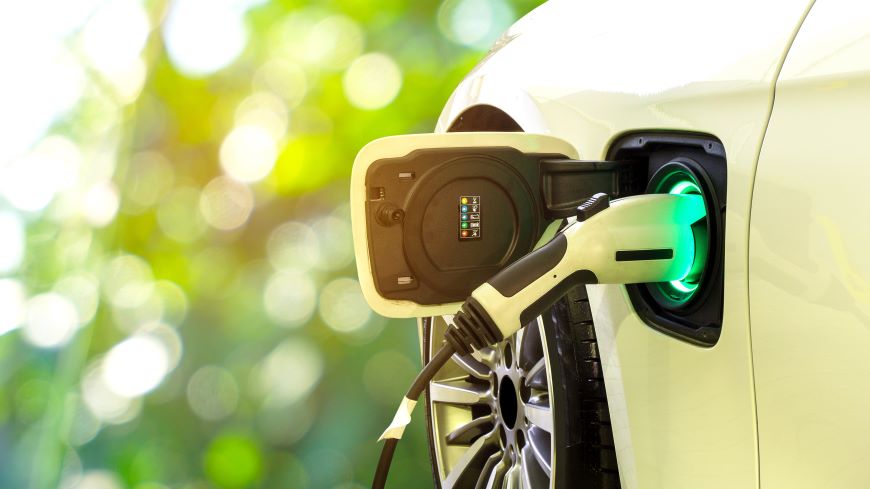Standoff on EU green car deal is bad news for sustainability ambitions

This week’s annual report from the IPCC balanced its stark warning about the risk of inaction on the climate crisis with a positive message on solutions. The clear message was that we now have much more economically viable technological and engineering solutions to properly tackle climate change and re-invigorate systems to be clean, green and sustainable.
What is required now is the political will to put those solutions and systems right at the top of governments’ priority lists.
But it could be that getting political alignment on action is more complicated than even the most advanced tech solutions. That is how it appears in the context of EU negotiations on its Green Deal which have faltered because of a row between two of its largest economies about automotives and energy supply.
Both France and Germany are seeking changes to a package of EU-wide rules that would impact their key national industries: cars and nuclear energy production.
Backtracking on agreements jeopardizes green progress
The EU’s plans to ban the sale of polluting cars and vans by 2035 to deal with damaging transport-based emissions and incentivise the production of electric vehicles and infrastructure.
Germany surprised many with a last-minute veto on the legislation agreed in trilogue earlier this month – believed to be motivated by national politics and protectionism of its flagship industry.
The German government argues that synthetic e-fuels (carbon-neutral fuels with similar properties to diesel or petrol) should be exempt from the regulations. This would allow its automotive industry to continue to produce combustion-engine based vehicles but have them powered by fossil fuel alternatives – as opposed to shifting its entire production industry towards electric vehicles.
However, exemptions on e-fuels had already been rejected during the long negotiations. Moreover, it’s not yet clear if e-fuels would even get the seal of approval from environmental and consumer groups, and will inevitably slow the journey towards full electrification of vehicles.
German car industry has poor track record on emissions
Of course, it’s not the first time that the German car industry and the issue of emissions have met. The Dieselgate scandal which began in 2016 triggered a series of consumer collective actions and complaints across the globe – including from our members in Belgium, Spain, Italy and Portugal. It also led to much stricter emissions tests and paved the way towards zero mission mobility.
For consumers, while the move to electric vehicles poses many issues including upfront costs and ease of recharging, overall it is a positive option for many.
There’s still work to be done to improve the technologies involved. Euroconsumers members road tested 100% electric vehicles in 2021 to test the current public charging network and work out where to target improvements. The 2035 target will focus action to improve battery capacity, payment systems, at-home charging and public charging infrastructure.
Standoff comes at a high cost
The timing of the block from Germany was not just a surprise, but a source of anger and worry for many who felt it threatened the trust and credibility that the legislative system relies on to function.
There were concerns that it would open the door to more and more countries vetoing green regulations to protect their national industry interests.
France also came under the spotlight this week as it was reported that they wanted to highlight the role of nuclear power in the de-carbonization of industry. Nuclear power is not fossil-fuel based, but nor is it from renewable sources.
As a low-carbon fuel, it can fall into the category of ‘clean’ energy, but many are opposed to its use and believe clean fuels should also be renewable and sustainable. Among those opposed to relying on nuclear as a path to de-carbonization are the German government, making for yet more tricky discussions.
Leading a green transition needs ambition and courage across borders
So, despite the availability of technology and a legislative system that has been fine tuned over decades to deliver EU wide compromise and action, getting key environmental legislation across the finish line is challenging. The Commission is standing firm and refusing to reopen the deal.
All of this is happening in a world region which is held up as an example of strong leadership on the green transition. Only a global transition to a sustainable economy and society will be successful. Our climate system does not recognise national borders and so fixes need to be found at an international scale.
We have already seen the rising threat of a trade war between the EU and US over the use of subsidies for green tech. Protectionism of national industries is not surprising but leaders need to look at the bigger global picture so they can grasp the opportunities that committing to a long term change to a greener, cleaner and fairer society will bring.
We have the green tech, now let’s see some political bravery.

